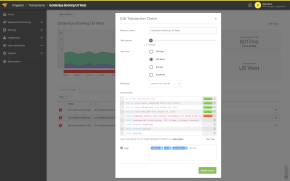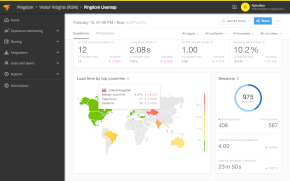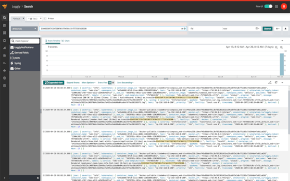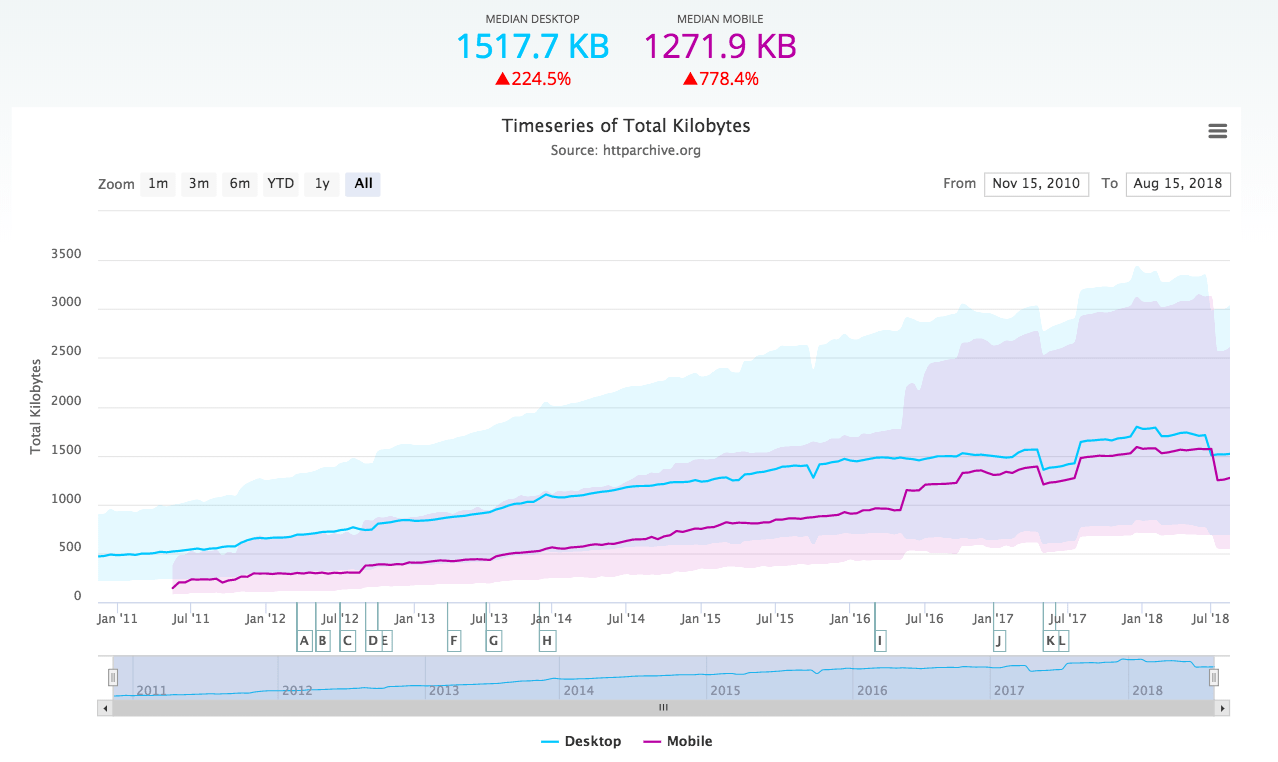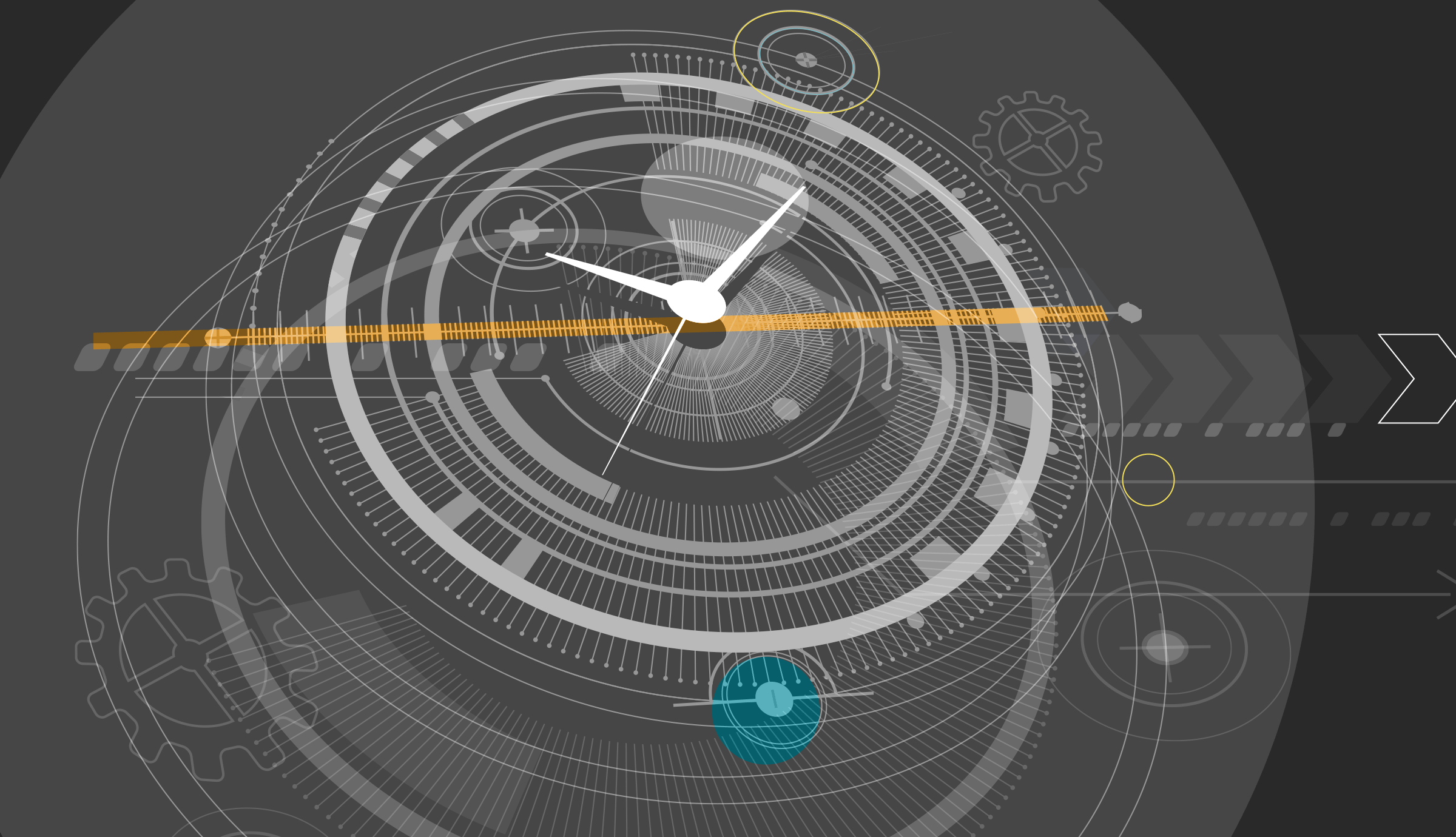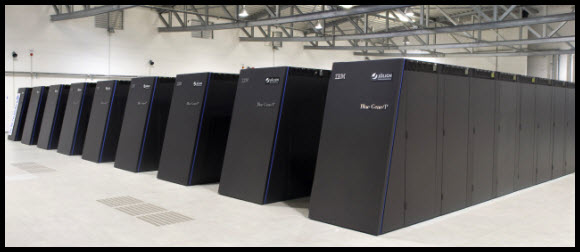
What is now the fastest supercomputer in Europe was recently unveiled at a research institute in Jülich, Germany. The computer, named Jugene, is capable of a massive one trillion computing operations per second.
Here are some facts about the Jugene supercomputer:
- Based on IBM’s Blue Gene/P architecture.
- Computing capacity: 1 petaflop/second.
- That equals the computing power of more than 50,000 PCs.
- 294,912 processor cores.
- Processor type: 32-bit PowerPC 450 at 850 MHz.
- 144 terabytes of RAM.
- Mounted in 72 racks.
- Network bandwidth: 5.1 gigabyte/second with a 160 nanosecond latency.
- Power input: 2.2 megawatts.
Wish we could get one of these for Pingdom. Couldn’t cost all that much, could it? 😉
Packing those CPUs tightly together
Each of the Jugene’s 72 racks has 1024 compute nodes, where each node has 2 gigabyte of RAM (totaling 144 terabytes for the whole system). This is what the compute nodes look like and how they are packed together:
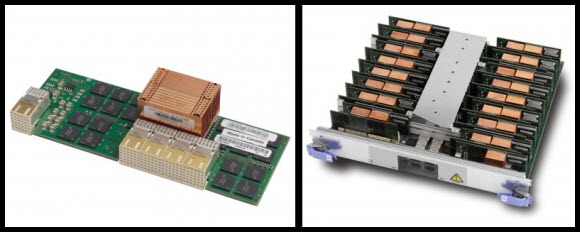
For those of you who really want to dive into the nitty-gritty tech specs regarding Jugene’s setup, here’s more info.
Installing Jugene
Looks like there was some cabling involved in the installation process. A LOT of it…
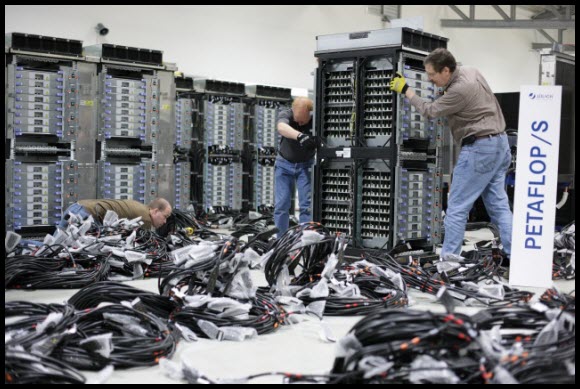
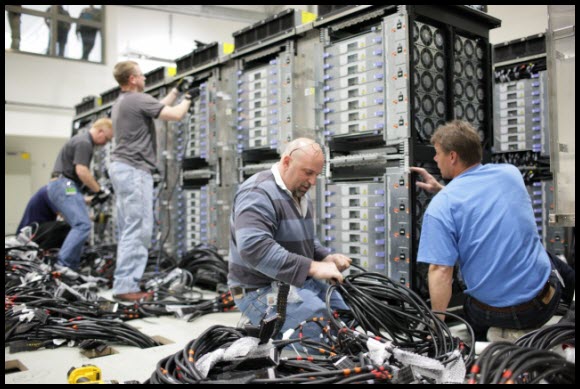
This is most definitely a bit more complicated than plugging in your home computer.
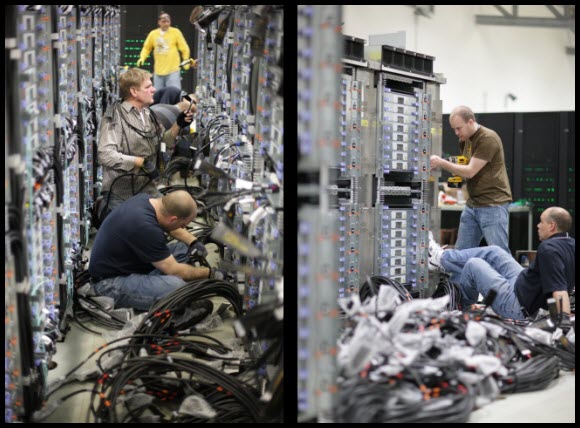
Source: The Jülich Supercomputing Centre.
Suggested further reading:
Ten of the coolest and most powerful supercomputers of all time
